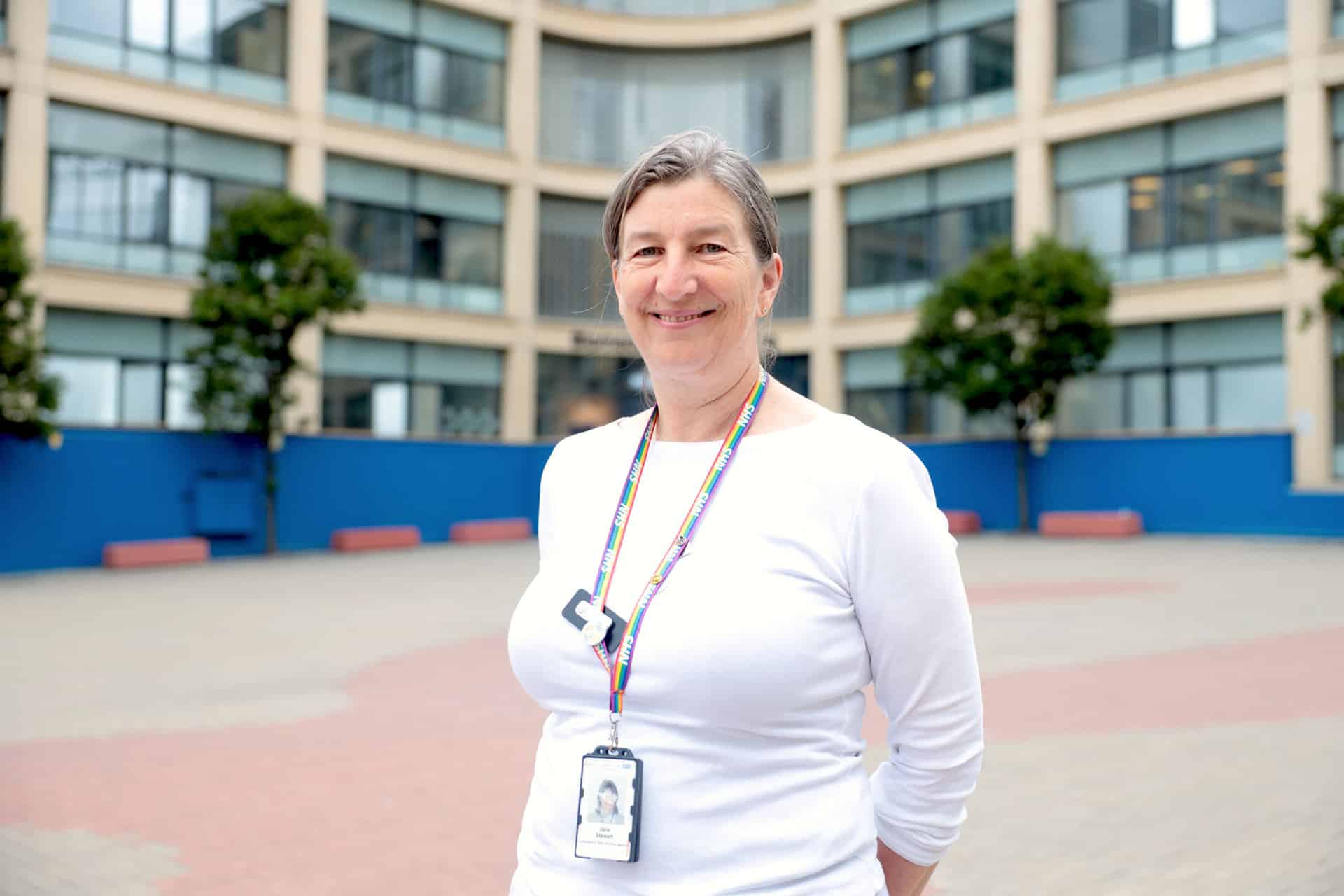
Dr Jane Stewart is a Consultant in Reproductive Medicine and Gynaecology. On the eve of her retirement, Jane reflects back on the achievements of the internationally renowned Newcastle Fertility Centre, which operates at Life.
My job title is Consultant in Reproductive Medicine and Gynaecology. I have been a Consultant for a little over 20 years but part of the Newcastle fertility service since 1994 (apart from a short time away to complete my general O&G training in Sunderland Royal).
Professor Alison Murdoch’s name remains synonymous with Newcastle fertility – she set up the service on a shoestring in the 1980s in the RVI and in 1999, needing an enhanced space, Alison moved the department, lock, stock and barrel, to the International Centre for Life (Life).
It was the happiest of moves and Life has been our home ever since. We are proud to be part of the ICfL family.
From the outset the service, recently described by our Chief Executive as a “jewel in the crown” of the Newcastle Hospitals NHS Trust, managed investigation and treatment of fertility problems, but importantly incorporated research and innovation.
This ethos, nurtured by Professor Mary Herbert, has remained, standing us in good stead both nationally and internationally. Research is integral to our service development and quality assurance, and importantly our patients contribute greatly to that programme.
It has also ensured that our team turns a critical eye to new treatments so that our fertility management is evidence based. On that basis and with the support of our regional commissioners and the Trust, we have maintained a comprehensive and highly regarded programme of investigation and treatment wholly embedded in the National Health Service.
Over the years we have grown with the science. In 2014 we introduced a specialist Andrology service led by Mr Kevin McEleny. Remarkably it is unusual for this to be integrated within fertility centres, but it allows our male patients a proper combined approach to include diagnosis with partner assessment and treatment. This work has further strengthened our links with the endocrinology team in dealing with hormonal stimulation of sperm production for treatment and storage.
With the collaboration of the regional mitochondrial team and incorporating the research and clinical laboratory skills of Principal Embryologist Dr Louise Hyslop, we have introduced pre-implantation testing for mitochondrial mutations as well as the “world-first” mitochondrial donation service.
We have developed strong links with many other hospital specialties. I have maintained a clinic over many years designed to provide information to those with other medical issues about their prospects for future fertility. There are few hospital specialties with whom we don’t have at least one or two patients in common, which really highlights how many lives may be touched by fertility related issues.
Alongside this we provide fertility preservation for individuals experiencing fertility compromising conditions and treatments (including, but not confined to, cancer diagnoses), both male and more recently female, storing eggs, sperm and embryos for future use. This is an area that continues to develop and holds much future promise. Our clinics now comprise in addition an implantation clinic primarily caring for those experiencing recurrent early pregnancy loss and implantation issues.
We work as a truly multidisciplinary team and have been instrumental in training numerous nurses, embryologists and doctors in the requisite skills for practice in reproductive medicine – those skills are shared now all over the country and across the world.
There have been many challenges over the years but I think the greatest has to have been the COVID pandemic. As with all health services, our ability to maintain work during this time was significantly limited. Moreover, as those seeking fertility help know only too well, time is really important and therefore both locally, and in my national role as then Chair of the British Fertility Society, my aim was to ensure that following a temporary closure of all fertility centres in the UK, re-opening included recognition that fertility treatment remained a priority.
Fertility problems remain one of the commonest reasons in the UK for individuals and couples in their 20s and 30s to seek medical help. Worldwide it remains a stigmatising condition affecting health (both physical and mental) and wellbeing of individuals but with truly intergenerational impact. As such it is considered a significant priority for the World Health Organisation as a global health issue.
Patients need support but it also important that we recognise both the burden of infertility as well as the benefits in relieving those problems. Moreover, global education of natural fertility and its limitations, aside from avoiding unplanned pregnancy, may allow better preventative measures as well as better choices being made.
Our work doesn’t always include planning treatment and sadly our work doesn’t always end in successful pregnancy. Part of our role however is to reassure those who are found to have no fertility issues, and to help those, where their fertility problem is seemingly insurmountable, to understand and come to terms with this. We have a well-developed counselling and support service for when we need help to pick up those pieces.
On the eve of my retirement, it is timely to reflect back on the achievements of the NFC team. It has been a remarkable journey with many miles yet to travel. I feel enormously privileged to have led a portion of that journey and so fortunate to have been given the opportunity to be a member of that amazing team for the majority of my career.
